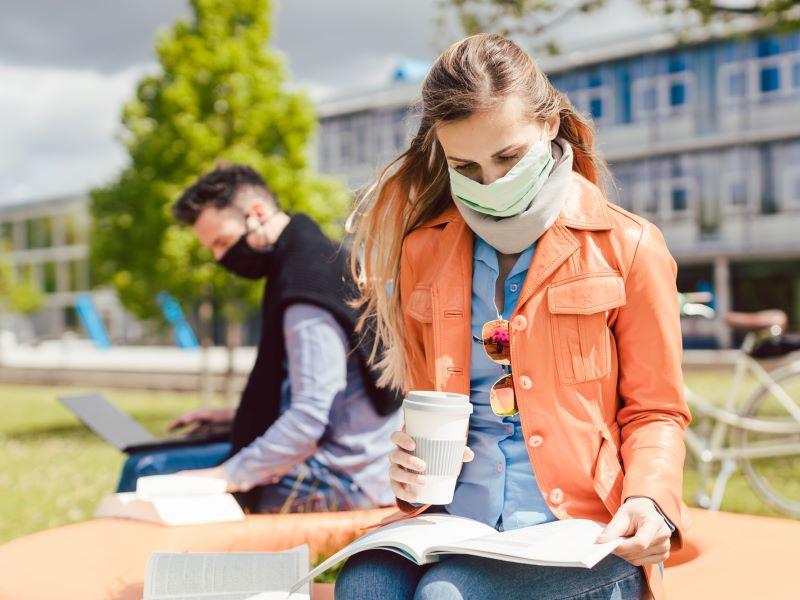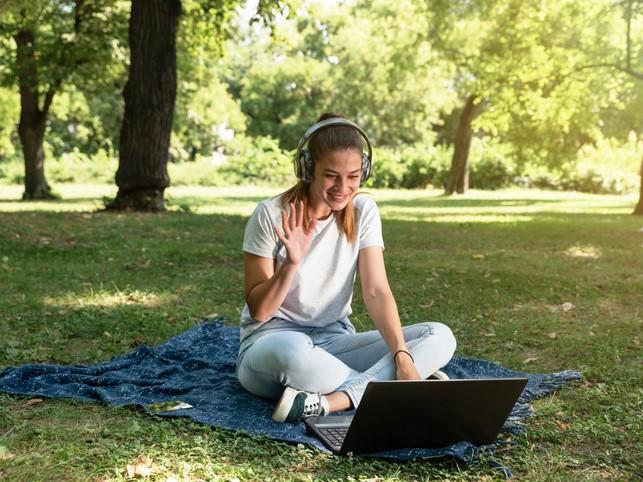
Three things to think about when returning to campus

You may also like
With the new 19 July date for ending the remaining coronavirus restrictions looming before us, many academic and professional services staff are starting to think about the return to campus. Some staff will return to campus full time; some will undertake hybrid working; and some have been told that they will continue to work at home on a permanent basis. Undoubtedly universities are taking what we have learned from the pandemic to instil new ways of working for various identifiable benefits such as improved staff well-being and job satisfaction provided by the flexible working approach alongside the opportunity to better use space and the estate – no more battling for meeting rooms, now that we’ve proved that meetings can happen just as effectively online, and fewer pressures to buy land and buildings for city-based institutions where property prices are at a premium.
More people working from home means more space on campus and, perhaps, the opportunity to end leases on buildings that might no longer be required. The next six to 12 months will be a period of trial and error as management teams seek to implement the best ways of working going forward, blending the best of things that we’ve learned from homeworking while retaining the things that worked well before the new normal arrived. With this in mind, here are three things for university staff in particular to think about when returning to campus:
1. Appreciate how the landscape may have changed
You may have worked in your own office before or you may have worked in an open-plan multi-occupancy space. When we get back to the office, things are going to look completely different. There will be signage reminding us to wash our hands, sanitise, to socially distance, to wear our masks when moving between areas or going to the toilet, to follow one-way systems in and out of buildings; there may be screens around our desks, and we might not be able to eat our lunches together as in the before times.
Even if the government relaxes all the rules, university health and safety departments will no doubt wish to err on the side of caution to ensure that vulnerable students and staff are protected. Not everyone will have been vaccinated, and some people may not be able to be because of health reasons. There may be an expectation from students that they can continue to have services provided to them virtually for their convenience, so those in student-facing roles may have to work between a counter service and a computer screen more frequently. If you are returning to a hybrid model of working, you may not have your own desk any more and will be expected to hot-desk, which means no more personalisation of your workspace – say goodbye to the photos, the jokey mugs and other paraphernalia that we cover our desks with. Realistically, our plants are probably already dead, so at least that’s one less thing to take home.
2. You need to mentally prepare yourself
Have you begun to think about how you will feel returning to work? If you dreaded the long commute in on a frequently late train and you’ve enjoyed the extra time that working from home has afforded you, you may need to steel yourself for the impact of returning to the old routine. Think about what your new routine will be and how your priorities might have changed. Will you be staggering your journey times to avoid rush-hour traffic? Will your working hours change? Will you be working with the same people, or will you be working alternate dates to keep numbers in the office down? Make sure you’ve had time to talk with your line manager so you understand what their expectations are and that they meet your own. Don’t beat yourself up if you find that you’re making silly mistakes in those first few weeks back. We’ll all still be adapting, and remember that everyone wants the return to campus to be as stress-free as possible and will understand that there will be a period of transition.
Not only will things look and feel different when we get back to the office, but people will also be different. The pandemic has taught us that we aren’t all in the same boat; we’ve been in the same storm, but everyone has coped in their own ways according to their own circumstances. That bubbly, gregarious, hug-a-lot colleague you knew before may wish to have a lot more personal space. Some of us will have a period of re-socialisation if we’ve been alone with only a cat for company for the majority of lockdown. Give people the space that they need to adapt, and don’t expect colleagues to behave in a certain way – we are all different. Also remember that not everyone has enjoyed the safety of working from home. Our cleaners, general assistants, posties, librarians and receptionists have been working throughout lockdown, travelling into work during the scariest times of the pandemic, and they won’t appreciate your banging on about how much you loved working from home and how you perfected that banana bread recipe on your lunch breaks.
3. Remember the good things we’ve learned from working at home
The best thing for me as an executive assistant working from home was not having to do any photocopying or printing. The executive leadership team learned to manage with on-screen meeting and board papers and have agreed that they won’t go back to the old ways of printing everything for the sake of the environment. I think that the nature and format of meetings will change going forward now, whether they are exam boards, programme team meetings or management team meetings, I believe there will now be flexibility in the way that people attend. Hopefully, the days of spending half an hour running between buildings to get to a meeting are long gone. Those who wish to attend in person can, and those who want to attend virtually will still have that option now that we are all familiar with the technological platforms that allow us to do this.
We all need to reflect on how the nature of our work and our daily activities might have changed over the past 18 months. The way we work and the type of work we do may be done very differently when we get back to campus. Our students have really appreciated the online support from student advice and well-being teams, and this will continue even when face-to-face sessions return because it allows the student to choose the medium for meeting that suits them best.
For all of us professional services staff, whatever our roles, communication with colleagues and line managers is going to be key in understanding our responsibilities, supporting one another and navigating a successful return to campus. I wish you all the best for a stress-free and enjoyable return to campus.
Emily Walker is executive support officer to the pro vice-chancellors at Liverpool John Moores University.


